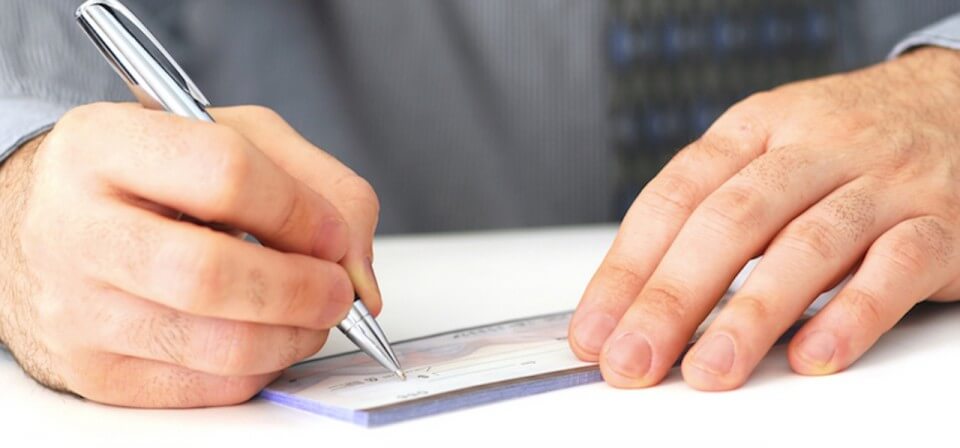In the UAE, if a cheque issued by an individual or entity is dishonoured for insufficient funds in a bank account of a drawer, the drawee is entitled to file an execution case
Cheque bounced in Dubai? Here’s what happens next
Question: I’ve seen conflicting information online, so let me ask clearly: What happens if a cheque bounces in Dubai?
By Staff Reporter
Answer: In the UAE, if a cheque issued by an individual (drawer) or entity (drawee) is dishonoured for insufficient funds in a bank account of a drawer, the drawee is entitled to file an execution case claiming the amount of the dishonoured cheque against a drawer known as ‘Writ of Execution’ in the court which has jurisdiction to hear the matter in the UAE.
This is under Article 212 of Federal Decree-Law No. 42 of 2022 on the Promulgation of the Civil Procedures Law, which states,
“1. Compulsory enforcement may be carried out only under a writ of execution, in satisfaction of a right verified, urgent and of a specified amount.
Stay up to date with the latest news. Follow KT on WhatsApp Channels.
2. Writ of execution are:
a. Judgements and orders, including penal judgements along with any refunds, compensation, fines and other civil rights contained therein.
b. Documents authenticated in accordance with the law governing authentication and documentation.
c. Minutes of the conciliation ratified by the courts.
d. Other documents granted such capacity by the law.
3. The execution may not take place, in cases other than those exempted by law, except under a copy of the writ of execution stamped with the following executory formula: “The competent authorities and entities shall proceed with the execution of this writ and assist in its execution even coercively whenever requested to do so.
4. In the event that the execution applicant did not submit a request to take action in the file for a period exceeding one year after the last procedure, the execution judge may order the temporary closure of the file.
5. Writs of execution shall not be executed if abandoned for fifteen years from the date of the last executory transaction or left for the same period since its issuance without enforcement.”
Based on the aforementioned provision of the law, if a drawee obtains an execution order in his/her favour, then a drawee may proceed with filing an execution proceedings as mentioned in Article 667 of Federal Decree-Law No. 50 of 2022 Issuing the Commercial Transactions Law and as mentioned in Article 233 to Article 238 (both inclusive) of the UAE Civil Procedures Law, against a drawer.
A drawer needs to be notified by the relevant court in UAE which has jurisdiction related to the execution proceedings filed by a drawee. The notification may include the execution amount which includes the amount mentioned in a cheque, which is dishonoured, relevant court fees, legal costs and other fees (if any) claimed by a drawee against a drawer. This is in accordance with Article 233 (3) of the UAE Civil Procedures Law.
A drawer may propose to the court and/or the executor once he is notified by the court related to an execution order that it intends to deposit part or whole of the execution amount to the court’s treasure in favour of the drawee. This is in accordance with Article 235 of the UAE Civil Procedures Law.
In the event a drawer does not pay the execution amount within seven days after notification of the execution order, then the court may issue an arrest warrant against a drawer on request of a drawee. This is in accordance with Article 319 of the UAE Civil Procedures Law.
Furthermore, the court may also impose a travel ban on a drawer if the execution amount is not less than Dh10,000. This is in accordance with Article 324 of the UAE Civil Procedures Law.
In addition, Article 663 to Article 667 (both inclusive) of the UAE Commercial Transaction Law provides for the provisions in case of the dishonour of a cheque and outlines the recourse available to the bearer of a dishonoured cheque, allowing him or her to seek compensation from a drawer, endorsers, and other obligors, provided a cheque is presented within the legal timeframe and proven dishonoured.
Based on the aforementioned provisions of law, if a cheque is dishonoured in UAE, due to insufficient funds, the bearer (drawee) of the cheque shall have the right to initiate execution proceedings against the issuer (drawer) under the applicable legal provisions. These proceedings may include the filing of a writ of execution, and if the drawer fails to settle the execution amount within the stipulated time after receiving official notification, the court may upon a request of a drawee issue an arrest warrant and potentially impose a travel ban, subject to the statutory thresholds and conditions being met.
It is further noted that a drawee may also be entitled to seek compensation through civil remedies provided under the relevant commercial law framework.
Accordingly, it is advisable that any individual facing such a situation seek appropriate legal counsel to assess the facts of their specific case and proceed under the legal remedies available under UAE law.
Ashish Mehta is the founder and Managing Partner of Ashish Mehta & Associates. He is qualified to practise law in Dubai, the United Kingdom and India. Full details of his firm on: www.amalawyers.com. Readers may e-mail their questions to: [email protected] or send them to Legal View, Khaleej Times, PO Box 11243, Dubai.
Source: Khaleej Times


